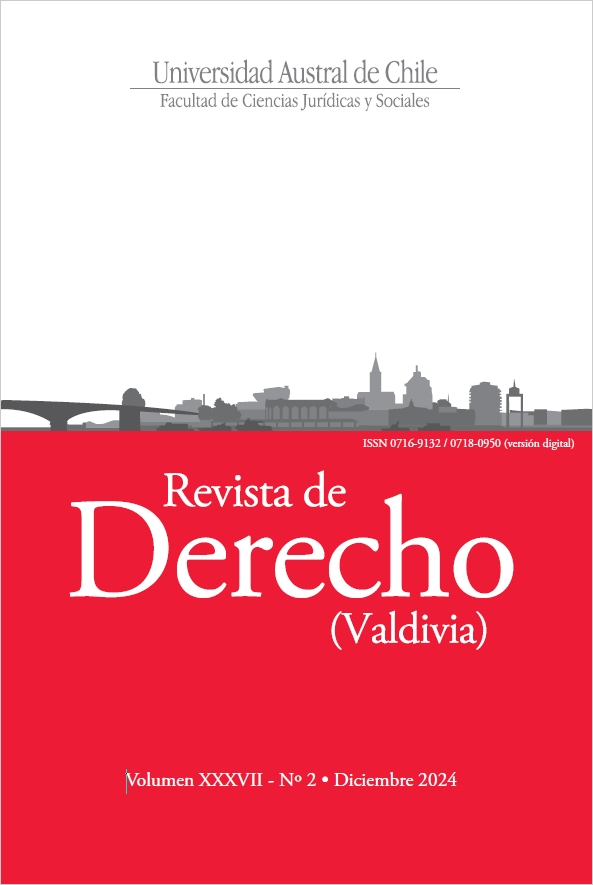Chilean environmental law as a dual system: unresolved tensions among anthropocentrism and ecocentrism
Main Article Content
Abstract
This paper scrutinizes the tension between anthropocentrism and ecocentrism within the Chilean environmental law. Despite the dominance of an anthropocentric interpretation, norms with a clear ecocentric focus are identified, aimed at protecting biodiversity and ecosystems regardless of their direct utility to humans. The analysis reveals that the anthropocentric paradigm fails to fully capture the objectives of current environmental legislation, resulting in inadequate protection of nature. Through a case study of Chilean legislation, it is shown that ecocentrism is normatively recognized and can coexist with an anthropocentric approach, particularly in public decision-making. This normative dualism suggests an identity crisis in environmental law, where an interpretation focused on the intrinsic protection of nature could better align environmental decisions with the spirit of the legislation and the inherent value of ecosystems.


 https://orcid.org/0000-0003-3928-8622
https://orcid.org/0000-0003-3928-8622